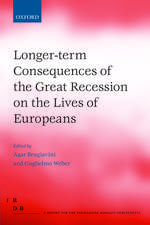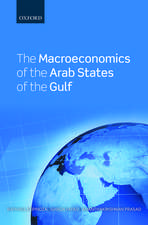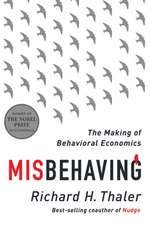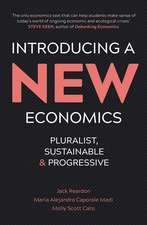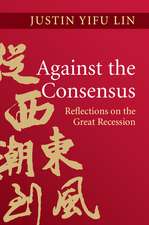Spain: A Modern European Economy
Autor Joseph Harrison, David Corkillen Limba Engleză Hardback – 28 mai 2004
Preț: 1109.18 lei
Preț vechi: 1352.65 lei
-18% Nou
Puncte Express: 1664
Preț estimativ în valută:
212.31€ • 230.69$ • 178.45£
212.31€ • 230.69$ • 178.45£
Carte tipărită la comandă
Livrare economică 21 aprilie-05 mai
Preluare comenzi: 021 569.72.76
Specificații
ISBN-13: 9780754601456
ISBN-10: 0754601455
Pagini: 255
Dimensiuni: 156 x 234 x 16 mm
Greutate: 0.45 kg
Ediția:1
Editura: Taylor & Francis
Colecția Routledge
Locul publicării:Oxford, United Kingdom
ISBN-10: 0754601455
Pagini: 255
Dimensiuni: 156 x 234 x 16 mm
Greutate: 0.45 kg
Ediția:1
Editura: Taylor & Francis
Colecția Routledge
Locul publicării:Oxford, United Kingdom
Notă biografică
Joseph Harrison works in the Department of History at the University of Manchester, UK. David Corkill works in the Department of Languages at Manchester Metropolitan University, UK.
Recenzii
'...a highly readable narrative. This fine volume is essential reading for all those wishing to familiarize themselves with the historical foundations of the modern Spanish economy.' Times Literary Supplement 'Students interested in Spain, the EU and its member nations will find this work to be a useful introduction. Recommended. Public and undergraduate library collections.' Choice 'Students interested in Spain, the EU, and its member nations will find this work to be a useful introduction...Recommended...' Choice
Cuprins
Chapter 1 The bumpy road to EMU; Chapter 2 Demography; Chapter 3 Agriculture; Chapter 4 Industry; Chapter 5 The services sector; Chapter 6 The external sector: trade and foreign investment; Chapter 7 The employment crisis and the labour market; Chapter 8 European integration and the Spanish regions;
Descriere
Written in a straight forward and engaging manner, Spain: A Modern European Economy engages with research from a wide variety of disciplines, and will be of interest to anyone with a specific interest in modern Spain, or a wider interest in economic development within the frame work of the European Union. Perhaps more than any other European country Spain has undergone a remarkable transformation in the post-war period. To the surprise of many, it has succeeded in making the leap from a predominantly agricultural and politically repressed country to a modern European democracy with a diversified economy containing important manufacturing and service sectors. Yet despite the fact that at the beginning of the twenty-first century Spain is the world's eighth largest economy, old stereotypes that see the Iberian nation as an inflexible, unchanging society persist.


